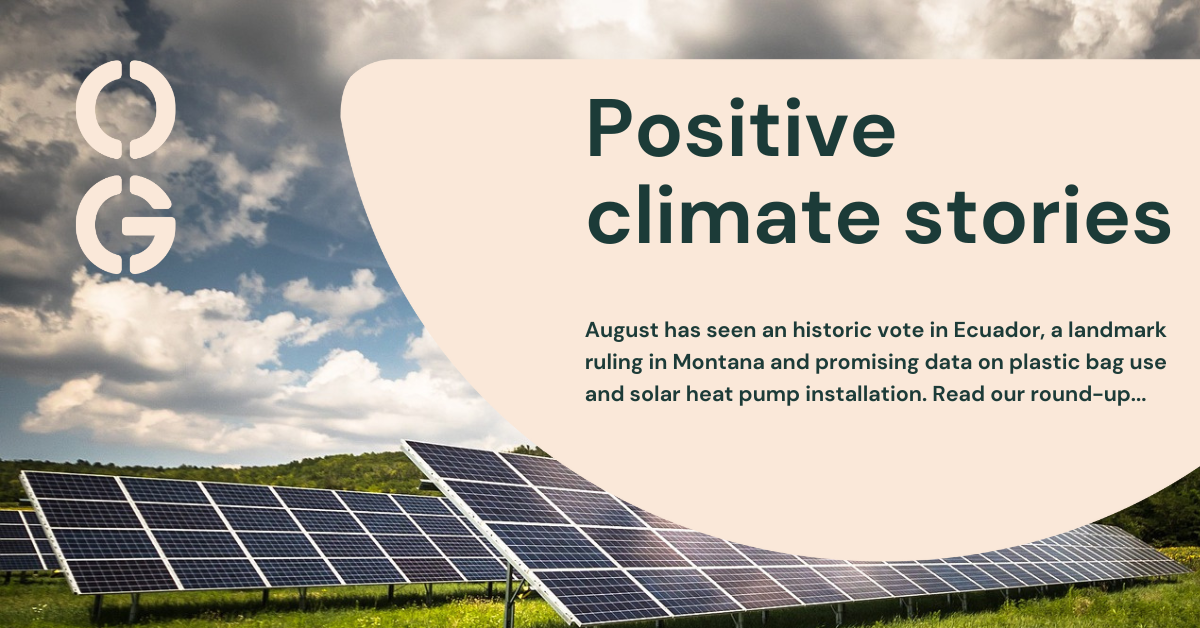As extreme weather events increase, we cannot keep ignoring the adaptation gap in climate finance
While Hurricane Milton ravaged the US last week, the UN’s Principles for Responsible Investment (PRI) network met in Toronto. Yet again, it failed to deliver the financial reform it supposedly advances and that are desperately needed. If we don’t finance climate adaptation today, extreme weather events will incur ever-greater damages in the future.
Hurricane Milton has struck Florida with deadly force, with the first deaths reported and the cost of estimated immediate damages rising to $175bn. The loss of life and the 5.5 million people – about the population of Norway – ordered to flee their homes for safety are grim instances of the human cost that climate change is starting to inflict across the world.
There should be no reasonable doubt that the south-eastern United States’ catastrophic year, battered by Storm Helene and an “exceptional” 1,100 tornadoes, are directly linked to our changing climate. Soaring seawater temperatures in the Gulf of Mexico have encouraged the development of unusually violent storms, whilst heatwaves inland have also accelerated the growth of tornadoes, the result of fast-moving warm air shearing into low-pressure, cooler air. The fast-growing field of climate attribution is enabling scientists to say with some precision that this year’s record of global extreme weather, from hurricanes in the US, to extreme monsoons in India, and wildfires in the Amazon, were all made “more likely and damaging” by climate change.
Climate finance needs to catch up
However, if the human and economic costs of climate change are all too obvious, and the scientific conclusion unavoidable, policy (and economic policy in particular) have yet to catch up. Even as Hurricane Milton hit, the UN’s Principles for Responsible Investment (PRI) network, “the world’s leading proponent of responsible investment”, was having its annual in-person meeting in Toronto. While nominally at the forefront of promoting sustainable investment, the PRI predictably stuck to its script last week maintaining the decisively unsustainable financial status quo. As the need for climate finance becomes ever starker, those positioned to deliver it continue to let us down.
What in the Global South has been a recurring and unavoidable calamity has looked quite different to policymakers in the Global North. Climate politics in the US and Europe is still dominated by the implicit but rather cheerful belief that it is a long way off – and perhaps even something positive: ‘When I hear “climate,” I think jobs,’ says Joe Biden, ‘Good-paying, high-quality jobs that will help speed our transition to a green economy of the future and unleash sustainable growth.’
It’s understandable why the US President wants to stress that a rapid decarbonisation programme – transitioning energy systems, insulating homes properly, even tree-planting, all have the potential to create millions of new jobs. The early evidence suggests the Inflation Reduction Act has already created 170,000 clean energy jobs alone. The EU’s Green Deal has been sold in the same way, and likewise the plans of UK Energy Secretary Ed Miliband.
The climate adaptation gap
Yet by talking up these relative positives of climate mitigation, we have ended up with an almost complete neglect of climate adaptation – of the measures necessary to deal with the climate change we already have, as well as the climate change we want to avoid, to “mitigate”, in the future.
The figures speak for themselves: whilst global mitigation efforts attracted $1.15tr over 2021/22, adaptation financing worldwide came to just $63bn, or a little under 5% of the total. This is far short of even relatively conservative estimates of what is now needed, with the UN’s Environment Programme estimating the “adaptation gap” in funding between need and delivery as at least $194bn, and perhaps as high as $366bn. As climate change worsens, the costs of (for example) adapting farming methods, securing water supplies, and planned relocations will rise inexorably.
It's not just the political rhetoric, of course. As environmental journalist Kate Aronoff points out, many of the actions we need to take to adapt to climate change are not so amenable to profit-making: home relocations, or improved access to healthcare, or climate-resilient infrastructure are less likely to produce the steady returns as shiny new cleantech investments for mitigation. This won’t stop people trying, of course – the world’s first “adaptation tech” venture capital conference wrapped up in Bavaria earlier this year – but it’s a barrier to private investment, in particular.
Insurance fails in the face of extreme weather
It's here that public policy has to step up – and go beyond the bailout model we’ve all seen used in crises and disasters since at least 2008. Already this is how governments are dealing with growing numbers of the uninsurable that climate change is creating – offering (expensive, and often inadequate) public home insurance where private markets will not, taking on huge new liabilities whilst allowing those same private insurers to continue making profits elsewhere. Already, there are 1.2 million homeowners in Florida’s state-backed “insurer of last resort”, up from 450,000 in 2020, whilst the British government’s Flood Re reinsurance scheme already stands behind 260,000 households. This is a backdoor bailout for private insurers – the worst possible government response, creating profitable opportunities from worsening chaos.
Instead, financing – public and private – needs to be directed towards the measures that can allow people to adequately prepare and protect themselves and their neighbourhoods from climate change. Tree-planting to help reduce extreme heat in urban areas. More effective water management systems. Assistance, in extremis, with the costs of relocation. None of it is likely to make for headline-grabbing big tech investments. Much can start to happen once we have better accounting systems in place, with more honest reporting of those assets – business, household, and government – stranded by climate change, making clear the costs of business-as-usual.
The UN PRI network’s six “principles” for sustainable investment will matter little if they can’t start to deliver adaptation financing on the scale needed. To achieve serious change we need a shift in how we talk and think about climate change, and a better alignment of political rhetoric with the new reality of a climate-shocked world.
Follow us on Twitter/X and LinkedIn to keep up to date with our work on climate finance.















